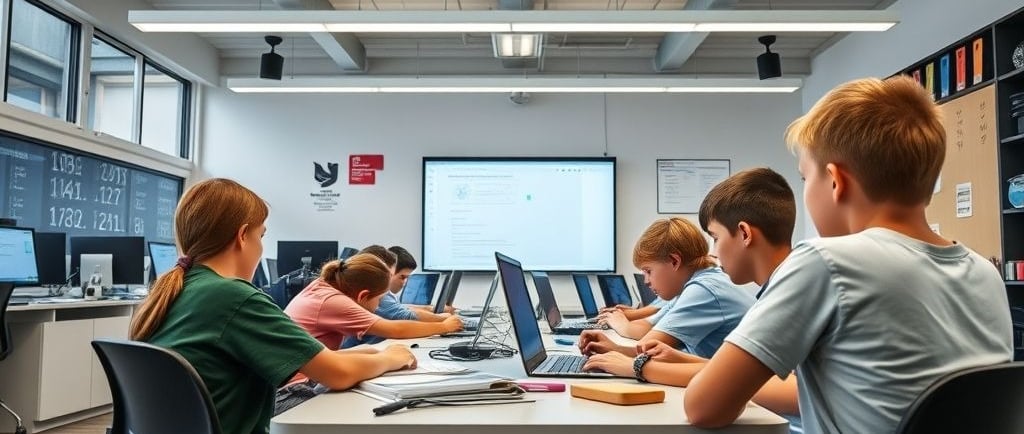Why School Is the Best Place to Learn Programming
Programming is no longer a niche skill—it is becoming a universal language of the future. With artificial intelligence, automation, and digital technologies reshaping every industry, schools are the best environment to introduce students to coding early on. Waiting until university is often too late.


Programming: The Language of the Future
Just as reading and writing were essential in the past century, coding is emerging as the literacy of the digital age. From apps and websites to robotics and artificial intelligence, coding is the foundation of almost every modern tool we use.
Schools that introduce programming are not just teaching students how to use technology—they’re equipping them to create it.
AI, Automation, and the Digital World
The rise of artificial intelligence and automation is transforming workplaces. Future careers—from medicine and law to construction and design—will require an understanding of how digital systems operate.
By starting programming early, students gain the confidence to work alongside these technologies rather than being overwhelmed by them.
Why Everyone Should Learn the Basics
Not every student will become a software engineer—but every student should know the foundations of programming. Understanding how algorithms work, how digital products are built, and how software ecosystems connect gives young people an edge in almost any career.
This is the same reason schools teach maths and science to all students: it builds universal skills that apply across disciplines.
University Is Too Late
Many universities expect students to enter with at least some coding knowledge. Starting from scratch at that stage can be overwhelming and discouraging. By embedding programming at school, students are better prepared for higher education and more competitive in the job market.
Coding Develops Logical Thinking
At its core, programming teaches students how to break down complex problems into smaller steps. This ability to think logically, analyse systems, and apply structured reasoning benefits not just technology, but problem-solving in everyday life.
Coding Is Creative
Programming isn’t only about logic—it’s also about creativity. With code, students can:
Build their own games
Design websites
Create software tools
Develop apps and digital art
These projects allow students to combine imagination with technical skills, building confidence as creators, not just consumers.
Understanding the Digital Ecosystem
When students learn to code, they begin to see how the digital world functions. They understand how websites communicate, how software interacts with hardware, and how automation powers industries. This knowledge turns them from passive users into active participants in the digital economy.
Final Thoughts
Schools are the ideal place to introduce programming. The earlier students begin, the stronger their foundation for future learning. Coding fosters logical thinking, fuels creativity, and prepares students for a world driven by AI and automation.
By making programming part of education from the start, we give students not only skills for careers—but tools for life.
